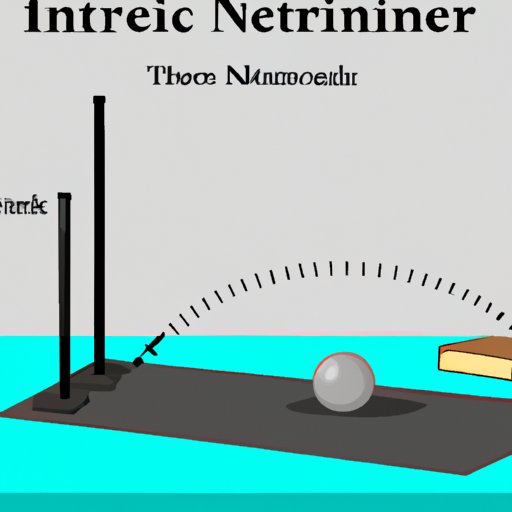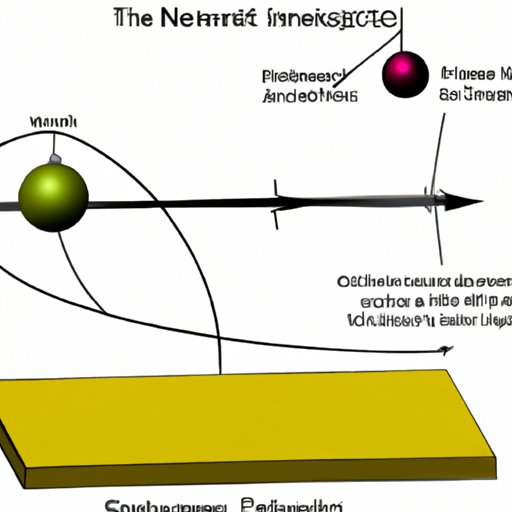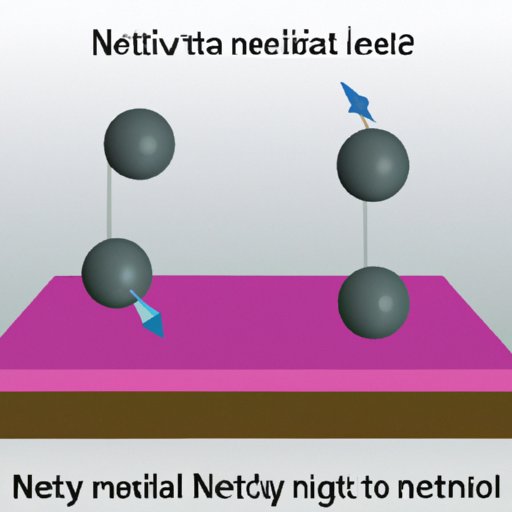
Exploring the Definition of Inertia in Science
Inertia is a fundamental concept in science and is a key factor in understanding the principles of motion and energy. But what does inertia mean in science? In this article, we will explore the definition of inertia, its role in physics and common examples of inertia in everyday life.

An Overview of Inertia and Its Role in Physics
Inertia is defined as the resistance of any physical object to any change in its velocity. This means that an object will stay at rest or keep moving in a straight line unless some external force acts upon it. It is one of the fundamental laws of physics and is closely related to mass, momentum and energy.
Inertia plays an important role in physics. It affects how objects move and interact with each other. It also affects the transfer of energy between objects. For example, when two objects collide, the amount of energy transferred depends on their masses, velocities and the amount of friction between them.
Common Examples of Inertia in Everyday Life
Inertia is all around us and can be seen in many everyday situations. Here are some common examples of inertia in action:
Rolling a Ball Down a Hill: When you roll a ball down a hill, it will continue to move in a straight line until it reaches the bottom. This is because of inertia – the ball’s resistance to any change in its velocity.
Objects in Space: Objects in space, such as planets and comets, follow orbits because of their inertia. They will continue to move in a straight line unless they are acted upon by some external force, such as the gravitational pull of another object.
Swinging a Pendulum: A pendulum will swing back and forth because of inertia. When the pendulum is pulled to one side, it will remain there until some external force acts upon it and causes it to swing in the opposite direction.
The Relationship Between Mass & Inertia
The relationship between mass and inertia is an important one. The greater the mass of an object, the greater its inertia. This means that it will take more force to accelerate a heavy object than it would to accelerate a light object.
This relationship can be seen in Newton’s Laws of Motion. These laws describe the behavior of objects under the influence of forces. The first law states that an object will remain at rest or in uniform motion in a straight line unless acted upon by an external force. The second law states that the acceleration of an object is directly proportional to the net force acting upon it and inversely proportional to its mass.
Investigating Newton’s Laws of Inertia
Newton’s laws of inertia provide further insight into the relationship between mass and inertia. The first law states that an object will remain at rest or in uniform motion in a straight line unless acted upon by an external force. This means that an object will not change its velocity unless a force is applied to it.
The second law states that the acceleration of an object is directly proportional to the net force acting upon it and inversely proportional to its mass. This means that the more massive an object is, the more force it will take to accelerate it.
The third law states that for every action, there is an equal and opposite reaction. This means that when one object exerts a force on another object, the second object will exert an equal and opposite force back on the first object.
Conclusion
Inertia is a fundamental concept in science and is closely related to mass, momentum and energy. It affects how objects move and interact with each other and is responsible for many everyday phenomena. We have explored the definition, role and examples of inertia, as well as its relationship with mass and Newton’s laws. Understanding these concepts can help us better understand the world around us.
(Note: Is this article not meeting your expectations? Do you have knowledge or insights to share? Unlock new opportunities and expand your reach by joining our authors team. Click Registration to join us and share your expertise with our readers.)
